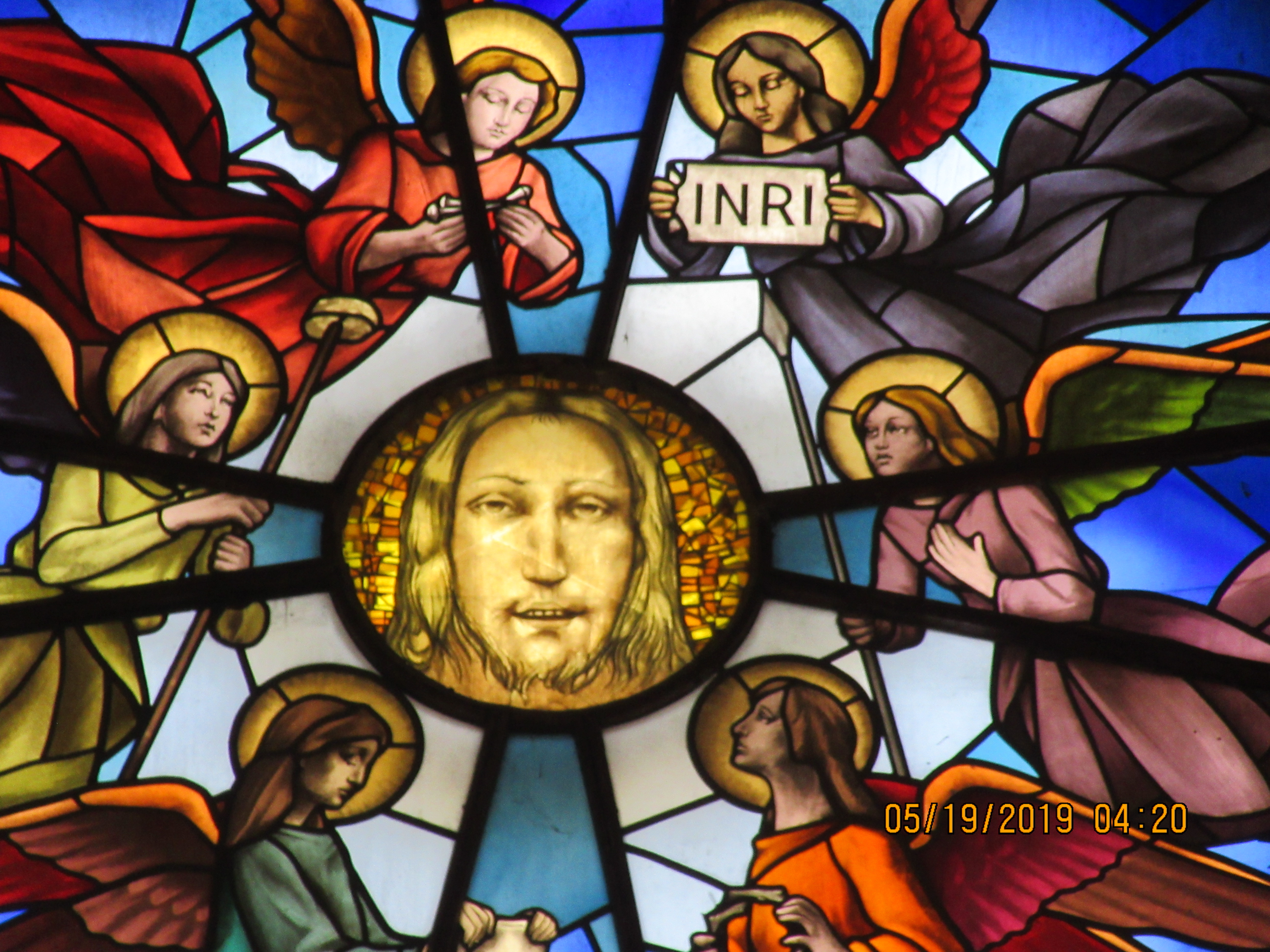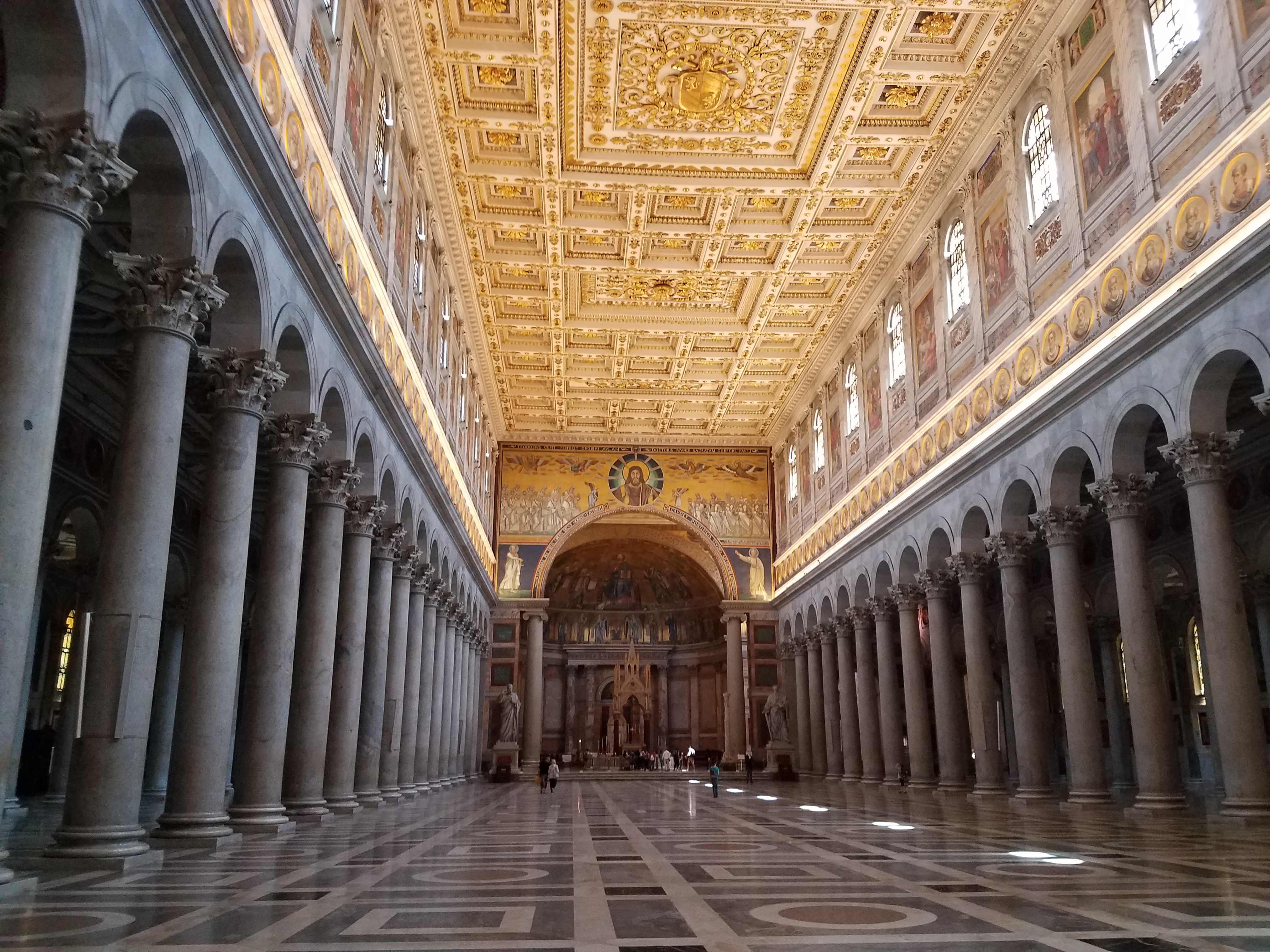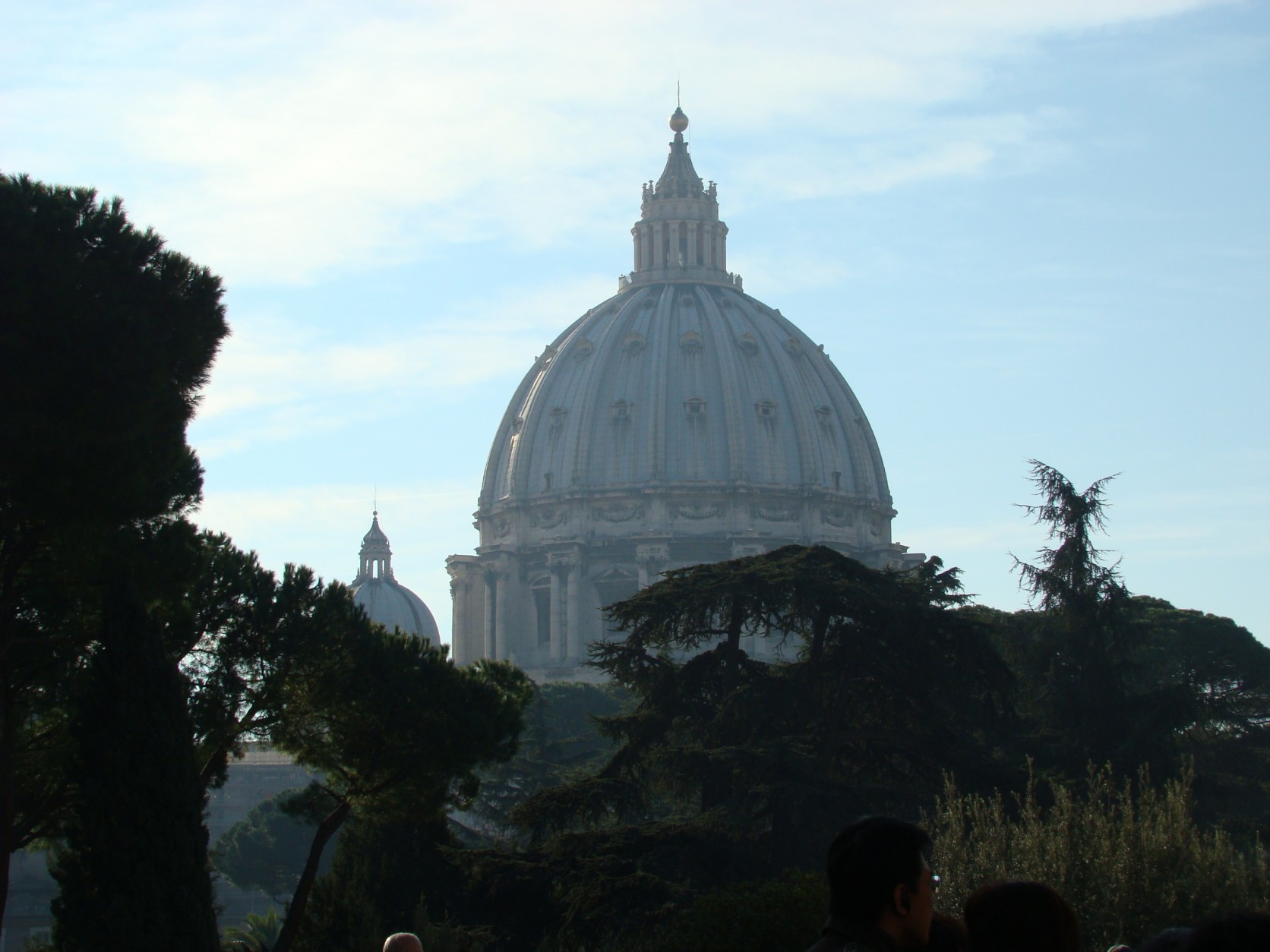Ex. 24:3-8; Ps. 116:12-13, 15-18; Heb. 9:11-15; Mk. 14:12-16, 22-26
The Passover lamb is the Most Holy Body and Blood of Christ shed for many obtaining eternal redemption for those who come to believe. The blood and sacrifice of young bulls from the old covenant with God is now the most perfect blood and sacrifice of Jesus for the new covenant of salvation. Jesus the “more perfect tabernacle” and high priest by his body and blood is the mediator for deliverance from transgressions under the new covenant.
The first covenant coming from the Father through Moses is the law of “word and ordinances” but Jesus comes with the more perfect covenant of love of God and neighbor in the second covenant. The word and the law are now incarnate in the person of Jesus for the mercy and love of Abba Father. In the Most Holy Body and Blood of Christ the word and law are incarnated into who we are not simply what we do, we are children of the Most-High God living the word in the Trinity, with the Father, Son, and Holy Spirit.
When we take up the cup of salvation in Christ’s body and blood, we “bless the Lord God, and (we) ask him to make all your paths straight and to grant success to all your endeavors and plans” says Tobit 4:19. Our God is a God engaged in our lives leading the way when we seek him, we will find him there with us. Our souls proclaim the greatness of the Lord because we receive him body, blood, soul, and divinity in the Eucharist. This is the promise he made to be with us until the end of time. Praise be to God!
When Jesus offers the Passover with his disciples in the large upper room instituting his body and blood as the new covenant, he is about to offer himself up “which will be shed for many” but there is one disciple, Judas who receives his body and blood in a spirit of unfaithfulness about to betray him. Christ knows the heart of his disciples but allows it to happen in his sorrowful passion. Judas then suffers the consequence of his betrayal as his conscience can no longer defend his own actions and death comes to the sinner.
Today the church faces a similar dilemma about to be addressed by the USCCB (United States Catholic Conference of Bishops). How is the church to respond to Catholics who openly stand against the teachings of the church in the public square but come to receive communion in the church? The ethical and moral dilemma of receiving communion in a state of mortal sin has major consequences for the soul of the person who knowingly participates in communion in defiance of church teaching. This dilemma extends into every Diocese and church.
How is the church to respond is the question USCCB is about to address and there are arguments already being made by Bishops for and against denying communion to a person who openly stands against the teachings of the church. In the early church beginnings, they faced many major dilemmas regarding the word and the law of the new covenant. Decisions were needed regarding circumcision of the Gentiles, when someone committed a mortal sin, did they need to be rebaptized, and how to treat Christians who denied the faith in order to save their lives or agreed to worship other gods for the same reason. These dilemmas were debated not with the spirit to punish but with the goal of sustaining a unified church.
The Church has always come together to face these challenges as a unified voice recalling the Word “whose sins you forgive are forgiven and whose sins you retain are retained.” We recall our confession of faith, the Church is one, Holy, Catholic, and Apostolic church. It carries the cross of Christ to bear fruit and shepherd it’s people. Just as the people answered Moses, “We will do everything that the Lord has told us”, we are called to follow church teachings in the same spirit as coming from the Lord. They did it through Moses the mediator for they did not hear the voice of God themselves but trusted in Moses speaking for God. We are to look to the church for the answer to love and justice coming from God when receiving his body and blood in communion.
We are living in a time of watered-down faith where many even within the church have lost the belief in the real presence of Christ in the Eucharist. According to Pew Research “Just 31% of U.S. Catholics believe that the bread and wine used in Communion become the body and blood of Christ (www.pewresearch.org). The majority of Catholics see the Eucharist as “symbols” of the body and blood of Christ. Of course, 100% of people who identify as Catholic don’t come to Mass every Sunday otherwise we would have to build megachurches to hold everyone. We have too many who come only for Christmas, Easter, and Ash Wednesday to receive any foundation of teaching worthy of a well-informed conscience.
Jesus says, “Take it; this is my body” and again “This is my blood of the covenant”. The definition of “is” is not ambiguous but clear and direct. There is nothing in his word that indicates it is a sign or symbol as many want to believe. In fact, it is the reason many left him because they understood clearly what he had said and found it difficult to accept his teaching. Saint Ambrose reminds us that if God can create something from nothing, he can surely take a substance and transform it into his human flesh or as we say today “transubstantiate” it. We have only to look at the many Eucharistic miracles to believe.
If the majority of Catholics treat the Eucharist as symbols then the Church has a greater dilemma that just a few persons who publicly receive communion and stand against the teachings of the Church. It reflects the loss of “fear of the Lord”. Fear of the Lord is the love of the Lord not wanting to grieve him by our sins of disobedience. Jesus offers us his body and blood to unite us to the Holy Trinity in love of the Lord to fear causing grief to his sacrificial love. In doing so we bring harm unto ourselves and to his body the church.
Imagine who does harm to the love of a child, a spouse or a friend by actively and willingly causing them an act of abuse, neglect, or exploitation, and yet it happens. When it happens, there is an outcry by society and laws to protect the innocent. When it happens within the church there is also Canon law to protect the body of the church. It happens when we lose our fear of the Lord becoming our own god by creating our own rules and justifications according to our own conscience. Our conscience can become grievously misinformed and misguided even by the majority view unless we trust in a higher authority.
The “herd” mentality creates a shadow of false truth under which many are willing to follow just as Adam followed Eve in committing sin but his excuse did not spare him the consequence of his sin. Let us recall 1 Timothy 4:2 “Through the insincerity of liars whose consciences are seared” many have fallen into sin with a herd mentality. In the day of judgement there will be no herd to justify us but there will be a herd gathered “to be thrown into the hell of fire” (Matthew 18:9).
Moses was the mediator for the people to Abba Father. Jesus is our mediator to Abba Father and the Holy Spirit is the mediator for the Church authority guiding the Church to bind and to loosen in heaven. Without authority and left to our own conscience there is no church unity, no Holy Catholic and Apostolic Church to provide us the foundation of faith. We become one sinful, divided and isolated church of one, a follower of self only.
The Church has a long history of tradition in creating a well-informed conscience with guiding principles based on the Word of God and prayer through the Holy Spirit. A key guiding principle is the salvation of souls. When scripture tells us: “So whoever knows the right thing to do and fails to do it, for him it is sin.” (James 4:17); “For the wages of sin is death” (Romans 6:23); “But your iniquities have made a separation between you and your God, and your sins have hidden his face from you so that he does not hear” (Isaiah 59:2); “There is a way that seems right to a man, but its end is the way of death” (Proverbs 14:12); “If we say we have no sin, we deceive ourselves, and the truth is not in us” (1 John 1:8); and finally “Do not be deceived: God is not mocked, for whatever one sows, that will he also reap” (Galatians 6:7), take that to the “bank”. What will we reap if all we have to say on the day of judgement is “I followed my conscience”? Let us pray it is not Mathew 24:51 “And will cut him in pieces and put him with the hypocrites. In that place there will be weeping and gnashing of teeth.”
The Word calls us to an accountability with love as Galatians 6:1 says, “Brothers, if anyone is caught in any transgression, you who are spiritual should restore him in a spirit of gentleness. Keep watch on yourself, lest you too be tempted.” What are we to be tempted by? Could it be the temptation to appear more righteous in the law than in the love of God? Whatever the USCCB decides one thing is certain, the spirit of God binds love with action. To “look the other way” is to bear the sin of omission so we are to join in prayer for all souls who knowingly choose to ignore the teachings and precepts of the church and have an examination of conscience with an honest assessment of our own actions as well.
We live in a culture where many identify as “spiritual” rather than religious where the spirituality of many claim “as long as my conscience is clear” such as “As long as my conscience is clear I can miss Mass, I can promote abortions, I can receive communion”. The fallacy of this philosophy comes from 2 Corinthians 11:3 “But I am afraid that as the serpent deceived Eve by his cunning, your thoughts will be led astray from a sincere and pure devotion to Christ” his body and blood, soul and divinity. Authority from Christ is what protects the Church from false teaching and guides his people in the way of truth. There is not “my truth and your truth” as modern times promotes its relativism but the Truth handed down from the beginning of time. The truth of his body and blood in the Eucharist is sacred. Let us recall the words of prayer, “Lord I am not worthy but only say the Word and my soul shall be healed.” We are on Holy ground, let us come and adore!
Tags








Recent Comments